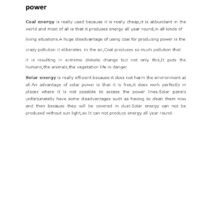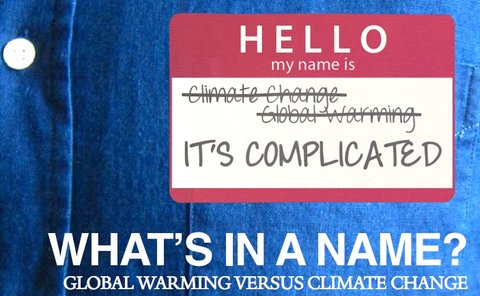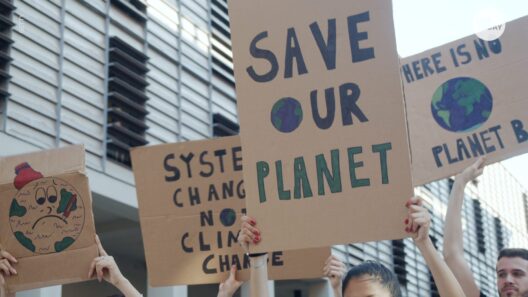In a world where climate change is the new tempest that threatens the very fabric of our existence, public figures wield immense influence over the discourse surrounding global warming. Each voice, whether they resonate with fervent urgency or cast doubt like a shadowy specter, shapes the collective understanding and response to climatic shifts. Among these voices lies that of Dave Dahl, the founder of an organic bakery, whose beliefs and opinions may not be immediately recognized as pivotal in the climate conversation but warrant scrutiny. The question arises: Does Dave Dahl believe in global warming? And what insights can we extract from the broader context of how public figures perceive climate issues?
The answer to whether Dahl believes in global warming is not encapsulated in a simple affirmation or denial. Rather, it invites a deeper exploration into the nuances of his thoughts and actions. Underpinning this inquiry is the understanding that belief in global warming often transcends mere acceptance of scientific facts; it frequently encapsulates an emotional interplay with environmental stewardship, legacy, and social responsibility. For Dahl, operating a business centered on organic and sustainable practices, one’s conviction in climate science can indeed illuminate their mission. When a baker chooses to embrace organic ingredients sourced from local farmers, it is not merely an economic decision but often a moral one, implying an acknowledgment of ecological impact and sustainability.
An array of public figures exists within the arena of environmental discourse, each varying in how they articulately endorse or contest the reality of human-induced climate change. Take, for instance, the stark divergence between advocates like former Vice President Al Gore and skeptics who align their views with climate change denial. Gore, adorned with accolades, channels his voice to rally against the looming threats of climate catastrophe. His perspective is emblematic of a critical faction in the public eye that heralds scientific consensus on anthropogenic climate change as an urgent call to action. This faction arguably resembles the buoy on turbulent seas—an object of both guidance and warning amidst the upheaval of misinformation and uncertainty.
Conversely, the skeptics, often emboldened by a world rife with conspiracy theories and contested narratives, wield a captivating allure for certain audiences. They flirt with the idea that climate change could be a natural fluctuation, devoid of human interference, and promulgate a cultural skepticism that acts as a siren song, pulling individuals away from collective acknowledgment. Each argument they present, though scientifically unfounded, resonates with those who yearn for simplicity amid complexity, thus exemplifying the paradox of belief in the modern world. This dichotomy reveals the fragmented landscape of public belief, where the elite and influential carry an amplified impact over mass perception.
Among environmentalists and advocates of climate science, notable figures like Greta Thunberg have emerged as icons of a generation longing for change. Thunberg’s impassioned addresses, often punctuated by raw emotion and stark urgency, serve as rallying cries against the apathy displayed by older generations. Her portrayal of climate change—an ongoing crisis that ravages the future—encapsulates an unyielding commitment to confronting the harsh realities of our warming planet. This fervent advocacy ripples outward, igniting movements and stirring public sentiment toward greater awareness and understanding, further underscoring how a figure’s beliefs can catalyze broader action.
Yet, while figures such as Thunberg capture the limelight, many, like Dahl, operate in the quieter spaces—where action speaks chapters. The work of bakers and farmers, though sometimes overlooked, engenders tangible results. These individuals embody the adage “think globally, act locally.” Their conscientious choices are akin to small seeds planted in nutrient-rich soil, gradually yielding a bountiful crop of positive environmental impact. Each sustainable decision nurtures the overarching goals of reducing emissions and fostering biodiversity. Thus, while Dahl’s belief in global warming might not be as vociferous as others, the very existence of his sustainable practices speaks volumes about his alignment with environmental consciousness.
The interaction between individual belief and collective action cultivates a complex ecosystem of advocacy. It echoes the balance of nature itself, where diverse organisms depend on one another for survival and growth. This interdependence is mirrored in the way public figures influence and inspire the populace. One of the most powerful motivators in human behavior is the notion of legacy—what will be left behind for future generations? This question prods countless individuals, including public figures, to reconsider their stances on global warming. It is the thread that connects the baker’s pursuit of sustainable flour and the public figure’s call for systemic change.
As the climate crisis accelerates, it is imperative to discern not only how Dave Dahl views global warming but to comprehend the broader implications of belief. Beliefs shape actions, policies, and what we allow to influence our lives and communities. Public figures can sow seeds of skepticism or instill urgency and action. As influential vessels in society, their declarations about global warming resound, echoing through legislative halls, newsrooms, and dinner tables. Our challenge persists: to sift through the cacophony of opinions and arrive at a collective understanding characterized by informed belief, active engagement, and enlightened action.
In exploring the beliefs of figures like Dave Dahl and their alignment with the reality of climate change, we grasp a richer narrative that transcends simplistic binaries. As the tide of climate activism rises, it calls upon every individual and every public figure to confront their role, echoing a profound truth about climate change: it is not only an environmental issue but a moral imperative that demands collective action. The question of belief persists, but what remains undeniable is that we must navigate this critical crossroads together, leveraging every voice—whether loud or soft—to champion a sustainable future.








